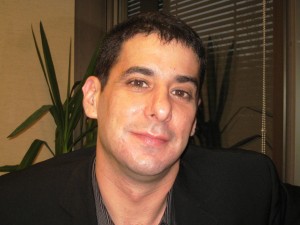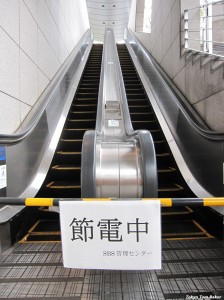Job: Director of Communications – Cross-Cultural Solutions (New Rochelle, NY)
Via Non-Profit Times. Posted by Dipika Soni (Ishikawa-ken, 2003-06). Dipika has recently moved back to London and is currently looking for new work opportunities related to Japan, translation, or other fields.
———————————————————————————————————————————-
***Note: If you apply for this position, please let them know you learned of it from JETwit. Thanks.***
Job Position: Director of Communications – Cross-Cultural Solutions (New Rochelle, NY)
Job Details:
Cross-Cultural Solutions (www.crossculturalsolutions.org), based in New Rochelle, NY is a non-profit international volunteer organization that operates volunteer programs worldwide. We currently seek an organized and experienced Director of Communications in our New Rochelle headquarters office to develop, lead, and implement strategic external communications. The Director of Communications will supervise a team of 4 staff members, proactively initiate communication strategies that increase enrollments in international volunteer programs, and cultivate effective relationships with strategic partners. The Director of Communications also oversees the development production and dissemination of all external communication materials, oversees the development of the social media strategy, and manages relationships with external vendors.
Via Idealist.org. Posted by Dipika Soni (Ishikawa-ken, 2003-06). Dipika has recently moved back to London and is currently looking for new work opportunities related to Japan, translation, or other fields.
———————————————————————————————————————————-
***Note: If you apply for this position, please let them know you learned of it from JETwit. Thanks.***
Job Position: Eurasia Program Coordinator (Brooklyn, NY)
Job Details:
The Social Science Research Council (SSRC) invites applications for a Program Coordinator to work with the Eurasia Program in the New York Office. The Social Science Research Council leads innovation, builds interdisciplinary and international networks, and focuses research on important public issues. It does this through a wide variety of workshops and conferences, fellowships and grants, summer training institutes, scholarly exchanges and publications. The SSRC is an independent and not-for-profit organization.
Ambassador Roos visits Monty Dickson’s school in Rikuzentakata, Iwate
From this morning’s Frontline Daily newsfeed:
Loose translation:
U.S. Ambassador to Japan Roos visited southern Iwate and Rikuzentakata on June 28 and dropped by Monty Dickson’s school, Yonezaki Elementary, to talk to the fifth grade class and the principal there. He was much beloved by everyone and loved the community much in return. Roos told the kids to come visit America when they grow up. He also met with the mayor and emphasized the strength of US-Japan relations, promising ongoing support for the rebuilding effort. He then observed the American NPO, All Hands Volunteers, who are helping build housing in and around Oofunato.
★ 犠牲米国人ゆかりの学校へ~ルース大使が被災地訪問
ルース駐日大使は28日、東日本大震災で大きな被害を受けた岩手県南部を訪問した。震災の犠牲になった米国人モンティー・ディクソンさん=当時(26)=が英語を教えていた陸前高田市の米崎小学校では、ディクソンさんの生前の思い出話に耳を傾け、子どもたちの歓迎を受けるなど、日米の絆を再確認した。米崎小の佐藤圭子校長は、ディクソンさんが震災当日まで授業をしていたことを紹介。「子どもたちに慕われ、教職員も(彼のことを)大好きでした」と昔の写真を見せながら語った。大使は、ディクソンさんの家族が「彼にとって特別な学校、地域社会だった」と話していたと述べ、佐藤校長に謝意を表明。その後、5年生のクラスに立ち寄り「大きくなったら米国に来てほしい」と語りかけ、握手攻めにあった。陸前高田市の戸羽太市長への表敬訪問では「日米の友好関係は非常に深い。力になりたい」と述べ、米国が今後も被災地支援に全力を挙げる考えを伝えた。大使は、被災地家屋の復旧などに当たっている米国のNPO、オールハンズボランティアが活動拠点とする大船渡市も視察。午後には大槌町で小学生とのキャッチボールに応じるなど、1日かけて被災地を巡り、草の根交流に奔走した。(共同)
Surviving in Japan: A Guide to Sunscreen in Japan
Posted by Ashley Thompson (Shizuoka-ken, 2008-2010) of Surviving in Japan: without much Japanese and Lifelines columnist for The Japan Times.
Just in time for summer (despite some of the gray days during the rainy season): an overview of sunscreen (or sunblock) in Japan.
I should note that I’ve heard various complaints about sunscreen tubes and bottles being relatively small here, and in many cases, this tends to be true. In my experience, women here often seem to prefer covering up their skin with clothing, hats, scarves, etc., carrying around an umbrella, and/or just avoiding being outside during the peak times of day. It’s not uncommon when stopped at an intersection to see pedestrians waiting under store eaves in the shade until the light turns green (though this is also just to get out of the heat). So I think one possible reason the quantities may be smaller is simply because they are primarily used on the face, neck, hands, and/or arms. Their small size also makes them easier to carry around.
As for men in Japan, it doesn’t seem that protecting their skin from the sun is as popular as it is with women. I’m sure some do, but women seem to be more concerned about this (in general, of course does not apply to everyone) and in general, sunscreen in Japan seems to be marketed more towards women.
First of all, sunscreen or sunblock in Japanese is: 日焼け止め (ひやけどめ, hiyakedome)
Other words to know:
紫外線 しがいせん ultraviolet rays
耐水性 たいすいせい water resistant
ウォータープルーフ waterproof
無香料 むこうりょう unscented
無着色 むちゃくしょく no coloring
Understanding UVA/UVB protection
Every country has its own form of indicating a sunscreen’s effectiveness against UVA and UVB rays, though the use of “SPF” is fairly standard.
Japan uses SPF to measure protection against UVB rays. You’ll see standard numbers such as 15, 30, 50, etc.
Protection against UVA rays is indicated in Japan as “PA” with a plus sign (+). There are no numbered measurements for this; more pluses equals more protection. You’ll find 3 versions: — CLICK HERE to read the rest of the post.
JET Publications
Check out the latest updates on the JET publications from around the country!
- Nagano‘s Yomoyama
- Spring Issue is out now; they are accepting submissions for the Summer issue!
Job: Purchasing Speicalist for H.I.S. International Tours (NYC)
Job listing received directly from H.I.S. Please make sure to mention JETwit if you apply.
———————————————-
Company: H.I.S. International Tours, Inc.
Location: New York, NY 10017
Industries: Japanese Travel Agency
Job Type: Full Time
Job Title: Purchasing Specialist
This position is responsible for negotiating and acquiring contracts for hotel accomodation.
The duties and responsibilities include, but are not limited to the following:
1) Establish and manage yearly purchasing contracts with hotels
2) Negotiate hotel room allotments, rates and cancellation charges for the annual hotel tariff submission
3) Establish and maintein good working relationshps with hotel sales
4) Provide Reservation Department with accurate and timely recommendations regarding hotel accommodations and their policies
5) Attend tradeshows, conventions and networking events specific to the travel industry and categories
6) Maintains accurate recordkeeping
General Requirements:
1) Energetic and dedicated
2) Strong negotiation skills a must
3) Deep understanding for Japanese culture
4) Excellent written and verbal communication and organizational skills
5)Must be able to interface on a daily basis with all personnel within the company
We are looking for someone who can help us grow our company together. If you meet these requirements, please send your resume and cover letter to icardenas@his-usa.com.
WIT Life #173: Homeless by mandate
WITLife is a periodic series written by professional Writer/Interpreter/Translator Stacy Smith (Kumamoto-ken CIR, 2000-03). She starts her day by watching Fujisankei’s newscast in Japanese, and here she shares some of the interesting tidbits and trends together with her own observations.
Almost four months have passed since the earthquake/tsunami hit Japan, and one might think that after this amount of time things have gotten back to some semblance of normal. That seems to be the case for the most part in Tokyo, where except for limited electricity usage and the omnipresent uncertainty regarding radation levels, it is back to business as usual. However, for those who lived in the disaster area, it is a different story. I recently spoke to a close friend over Skype, who told me about her brother who had lived with his family in Tohoku.
They, like many others from the disaster zone, cannot be cleared to return home due to restrictions on entering areas that exceed a certain level of radiation. Instead, they have spent the last few Read More
Job: Marketing & Events Coordinator at Morikami Museum (FL)
Via JET alum Wendy Lo. Posted by Dipika Soni (Ishikawa-ken, 2003-06). Dipika has recently moved back to London and is currently looking for new work opportunities related to Japan, translation, or other fields.
———————————————————————————————————————————-
***Note: If you apply for this position, please let them know you learned of it from JETwit. Thanks.***
Job Position: Marketing and Events Coordinator at Morikami Museum (FL)
Job Details:
Under the guidance of the Marketing & Events Manager, the Marketing & Events Coordinator will undertake the planning and overall administration of 3 annual festivals and public relations activities for the museum. Qualified candidate must work effectively with other Morikami staff including administrative, maintenance, development, finance, education and curatorial. This is a full time position.
Job: Researcher/Assistant Correspondent at Chunichi Newspapers (London)
Via JETAA UK. Posted by Dipika Soni (Ishikawa-ken, 2003-06). Dipika has recently moved back to London and is currently looking for new work opportunities related to Japan, translation, or other fields.
———————————————————————————————————————————-
***Note: If you apply for this position, please let them know you learned of it from JETwit. Thanks.***
Job Position: Researcher/Assistant Correspondent at Chunichi Newspapers (London)
Job Details:
The Tokyo Chunichi Newspapers’ London Bureau is looking to recruit a Researcher/Assistant Correspondent to assist the Japanese Correspondents in sourcing news and preparing articles. Working in a team, consisting of two Correspondents and two Assistant Correspondents, you will research current affairs topics, go to press conferences, conduct interviews and handle office administration.
Job: Paid Summer 2011 Internships at Reuters (Tokyo)
Via Reuters. Posted by Dipika Soni (Ishikawa-ken, 2003-06). Dipika has recently moved back to London and is currently looking for new work opportunities related to Japan, translation, or other fields.
———————————————————————————————————————————-
***Note: If you apply for this position, please let them know you learned of it from JETwit. Thanks.***
Job Position: Paid Summer 2011 Internships at Reuters (Tokyo)
Job Details:
INTERN – Journalism Summer Internship 2011- Tokyo (10 weeks)
The Reuters Japan newsroom seeks two talented student journalists with a passion for breaking news to work as paid interns in Tokyo during the summer of 2011.
Justin’s Japan: Interview with “Tokyo Vice” Author Jake Adelstein on Yakuza Films, Umbrellas

"I think the JET Program is a wonderful thing. Many people who have become scholars of Japan and have settled down in Japan begin on the JET Program. It is a wonderful way for the Japanese to get to understand Americans, and Americans to get to understand Japan." (Justin Tedaldi)
By JQ magazine editor Justin Tedaldi (CIR Kobe-shi, 2001-02) for Examiner.com. Visit his page here for related stories.
Examiner’s note: The following interview was conducted at New York’s Japan Society on March 10, 2011, hours before the Tohoku earthquake and tsunami would ravage eastern Japan. I was there to chat with guest lecturer Jake Adelstein, whose twelve-year career as a crime reporter for the Yomiuri Shinbun was chronicled in his acclaimed 2009 book Tokyo Vice. Adelstein is currently working on his second book, and as the editor of the Japan Subculture Research Center blog he continues to report on all the intriguing and seedy aspects that keep Japan running. In this exclusive interview, I spoke with Adelstein during an ominous cloudburst.
Thanks for meeting in this gloomy weather.
I used to like rainy weather, but my bodyguard, who’s an ex-yakuza, hates rainy weather. And I asked him once—I wish I hadn’t asked him—“What’s your deal with rainy weather? Why do you always not want to go out of the house and discourage me from going out?” And he’s like, “Oh, you know, when a yakuza kills another yakuza, they almost always do it on a rainy day, because first of all: bad visibility. The sound of the rain blurs the sounds of what’s going on, and the rain washes away all the trace evidence.” And ever since then, I haven’t been able to enjoy rainy weather as much as I used to.
I read that your birthday is coming up.
Well, let’s see. I’ll be 42. If all goes well, I will be ordained as a Soto Zen Buddhist priest on my birthday. I’ve got about a week of training left—if I could just remember that damn sutra. I had a talk with the priest and told him that I didn’t believe in the metaphysics of Buddhism, and he was like, “It’s all right. You just have to pretend that they’re true.” So as long as you uphold the precepts, it’s not belief; it’s deeds. I’m comfortable with that, the Episcopal King James version of Buddhism.
In an interview last year, you said you were going to have the opportunity to meet with yakuza boss Goto Tadamasa…
I might still have the opportunity, if he’s in good health. He’s been in and out of the hospital.
That’s his current status?
Yeah. He is still a priest. I’ve had some issues with his autobiography that was published last year, which had the equivalent of a yakuza fatwa on me. If you understand how the yakuza order people to be killed, you can read the lines very well. He refers to the attack on the director Itami Juzo in his memoirs and says, “Of course he deserved to be attacked, because he wrote a movie that was unpleasant about the yakuza,” and he refers to my writing as unpleasant. And then he has these two lines about, “I don’t know who this guy is, but even as an ex-yakuza, if I ever met him he would go from someone being targeted for death to someone being dead, ha-ha-ha.”
When a boss wants someone whacked in the yakuza, what he does is, he never gives an order, because then he could be held responsible. He just says, you know, “Johnson-san is a real pain in the ass; I don’t really like Johnson-san very well.” And his cohort immediately knows that he’s been asked to whack the guy. He whacks him and goes to jail, and comes out and gets a cash bonus from the organization. That’s how it’s done.
There’s talk that a film version of Tokyo Vice is in the works.
John Lesher, who produced No Country for Old Men, is signed on as the producer. There have been two or three actors who have expressed interest in playing the role. J.T. Rogers, who is a very good playwright—he’s got a play opening at Lincoln Center this year called Blood and Gifts—he is the principal screenwriter, and I am the co-writer. J.T. and I went to the same high school together. Actually, it’s interesting: he’s a very successful playwright, writes about Afghanistan and foreign countries. Peter Hessler, who is a China expert, he and I also hung out in high school at the same time.
What are your thoughts on the JET Program?
I think the JET Program is a wonderful thing. Many people who have become scholars of Japan and have settled down in Japan begin on the JET Program. It is a wonderful way for the Japanese to get to understand Americans, and Americans to get to understand Japan. Like any program, it has problems. I think it’s a great thing, and I hope it continues to be supported by both sides.
JQ Magazine: JQ&A with JET Alum Casey Novotny on the Documentary Film ‘100 Yen’

“I can definitely say I owe the experience that got me to this point to my time working as a CIR, and working with enthusiastic young students who want to study abroad during that time has motivated me to continue working in this field.” (Courtesy of Casey Novotny)
By Rick Ambrosio (Ibaraki-ken, 2006-08) for JQ magazine. Rick manages the JET Alumni Association of New York (JETAANY)’s Twitter page and is the creator of the JETwit column Tadaima!
Casey Novotny (Kochi-ken, 2005-08) gave us the inside scoop on 100 Yen, a film about the Japanese arcade scene coming this fall. Casey, who’s currently a program coordinator at Asia University in Tokyo, and director/JET alum Brad Crawford first met as JETs from Canada, and years later collaborated on this original project. Find out what inspired Casey and listen to his predictions for the future of the arcade scene.
How did you find yourself originally interested in Japan? Was it through games?
Yeah, I guess since when I was a child my interest in Japan started through video games, anime and such. The real thing that interested me those things, and thus Japan, was the gaping cultural differences. I really couldn’t grasp how the Japanese way of thinking could be so similar yet so different to ours. There was some weird stuff out there! I mean, there still is, but I think living here for over six years has kind of desensitized me to most of it.
How has Japan influenced your career and personal goals?
The first time I was an exchange student in Japan was when I was seventeen for half a year. That experience definitely changed my life, and I knew I wanted to make a career where I was going to use the Japanese language skills I was learning. At that point I wasn’t sure what kind of career, but I knew I had to improve my language skills and cultural understanding, and so I made a lot of my personal goals related to that. It seems I may be here for the long run, so it will probably continue that way!
How did your experience on JET lead you to where you are now?
I was a CIR in rural Kochi for three years. After enjoying life in the countryside and wanting to continue a similar career somewhere in Japan, I left for Tokyo and worked with a recruitment firm for more than a year and a half. It was a great experience and great place to work, but I realized that my place was with international education and exchange programs. I’ve been working with Asia University in Tokyo since then as a program coordinator for their America Program, which is the largest exchange program of its kind in Japan and probably one of the biggest in the world. I can definitely say I owe the experience that got me to this point to my time working as a CIR, and working with enthusiastic young students who want to study abroad during that time has motivated me to continue working in this field.
Job: Business Development at Independent Japanese Government Agency, TEMP (Annapolis, MD)
Via ACTUS. Posted by Dipika Soni (Ishikawa-ken, 2003-06). Dipika has recently moved back to London and is currently looking for new work opportunities related to Japan, translation, or other fields.
———————————————————————————————————————————-

***Note: If you apply for this position, please let them know you learned of it from JETwit. Thanks.***
Job Position:
Business Development at Independent Japanese Government Agency, TEMP (Annapolis, MD)
Responsibilities:
The main purpose of this position is to find and assist small-mid size US companies to start business in/with Japan. This is a ONE year TEMP position.
Signs of a setsuden summer
Posted by Tom Baker (Chiba-ken, 1989-91), coauthor of The Sushi Lover’s Cookbook and Tokyo Chic and contributor to Time Out Tokyo and Time Out Shortlist Tokyo. He blogs as “Tokyo Tom Baker.”
 “Setsuden,” or conserving electricity, has become a huge buzzword in Japan as the weather heats up and many nuclear power plants remain shut down. Many businesses have put up signs explaining their own setsuden activities and asking the public to join in.
“Setsuden,” or conserving electricity, has become a huge buzzword in Japan as the weather heats up and many nuclear power plants remain shut down. Many businesses have put up signs explaining their own setsuden activities and asking the public to join in.
Recently I have been been photographing setsuden signs around the Tokyo area for my blog.
Some of the signs are very simple and functional, like the message seen here on a closed escalator at a train station, which simply says, “Setsuden-chuu.”
Others are clever pieces of writing and/or graphic design.
I have a gallery of signs here, as well as explanations of my picks for the best-designed sign here and the best slogan here.
*************
I saw the below on the Pacific Northwest JETAA yahoo group, and apparently the Chicago Consulate has sent this out as well. MoFA and JNTO are willing to fly Tohoku JET alums back to Japan for a week for any JET alums willing to play a role in helping out their former communities and then help spread word of what they saw and experienced after their trip.
This sounds like a great opportunity for any Tohoku JET alums who can make time to do this. And a great opportunity for the JET alumni community to really help out Japan in a very concrete way.
Details are below. And you may get (or have already received) an email from your JETAA chapter or local consulate. There were also two attachments–guidelines and an application form–that I wasn’t able to access for some reason. If interested, hopefully you can get the documents from your consulate.
Minasan ganbatte kudasai.
****************
This message is being posted on behalf of the Ministry of Foreign Affairs and the Japan Tourism Agency
DEADLINE for applications to be received by the Consulate-General of Japan: July 11, 2011
INVITATION PROGRAM OF JET ALUMNI TO DISASTER STRICKEN AREAS IN TOHOKU:
- One week stay to take place within the period of July – September 2011
- Transportation to Japan & per diem provided.
Conditions for application:
2. CONDITIONS FOR PARTICIPATION
(1) No limit of ages and sexes.
(2) To have a work experience for two years or more either as a Coordinator for International Relations (CIR) or as an Assistant Language Teacher (ALT) in local governments in Iwate Prefecture, Miyagi Prefecture, Fukushima Prefecture or Sendai City.
(3) To be able to contact directly by themselves with a school and a local government where they were assigned.
(4) To be accepted by the organization for which the participants worked as a JET, and to be able to arrange with the organization some exchange activities.
(5) To be able to travel without an escort from their arrival to their departure from Japan.
(6) To send out the information such as their experiences of the stay in Japan this time and their impressions from foreign visitors’ viewpoints by various measures including contributions of articles to the mass media, blogs, homepages, facebooks.
(7) To consent interviews by Japanese and foreign medias, in case they are arranged during their stay
For full details & required form, see attached documents.
******************
Additional eligibility stipulation for Fukushima-ken applicants:
For any former Fukushima JETs, who are considering applying for the previously posted “Special Invitation Program” for JETAA to re-visit their CO’s to report on the post-disaster situation, special consideration is being taken regarding personal safety.
In respect for the official US guidelines of an 80 km radius from the Daiichi Nuclear Power Plant, applications for former Fukushima JETs will only be accepted for areas beyond the US recommended safety zone.


